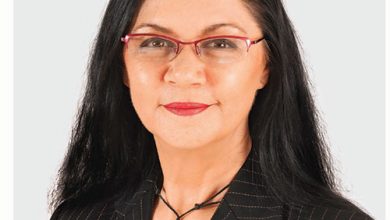EY SRI LANKA
ACCOUNTANTS’ EVOLVING ROLE IN THE MUTUAL EVALUATION
In the global effort to combat money laundering and terrorist financing, accountants serve as critical gatekeepers of financial integrity. Their responsibilities under anti-money laundering (AML) and countering the financing of terrorism (CFT) regulations go far beyond traditional accounting duties.
From verifying client identities to reporting suspicious transactions, accountants are expected to apply a vigilant and structured approach to ensure compliance and transparency.
Partner – Financial Accounting Advisory Services and Financial Services Risk Management, and Compliance Leader of EY Sri Lanka & Maldives Rajith Perera explains: “A key responsibility is client due diligence, which begins with verifying the identity of clients and understanding the nature of their business. This process involves collecting official documents such as identification, business registration and proof of address.”
Accountants must assess whether the client’s source of funds is legitimate and consistent with their business profile.
“Due diligence is not a one-time task… it requires ongoing monitoring and reassessment – especially when dealing with high-risk clients such as politically exposed persons (PEPs) or entities operating in jurisdictions with weak AML controls,” he adds.
Closely tied to due diligence is the need for transaction monitoring.
Perera explains: “Accountants must be alert to financial activities that deviate from expected patterns. Transactions that are unusually large, frequent or inconsistent with the client’s known operations may signal potential money laundering or terrorist financing.”
Other red flags include rapid movement of funds across borders, structuring transactions to avoid reporting thresholds or the use of complex financial instruments. Monitoring requires both automated systems and professional judgment to detect anomalies and escalate concerns appropriately.
“To support these efforts, accountants must conduct thorough risk assessments and adopt a risk based approach, tailoring their AML/CFT controls to the level of risk presented by different clients and services. This includes implementing internal policies, conducting staff training and performing regular audits to ensure compliance,” he elaborates.
When suspicious activity is detected, accountants must report it to the Financial Intelligence Unit (FIU) through a suspicious transaction report (STR) and ensure confidentiality as disclosing such reporting (known as tipping off) is a serious offence and can compromise the integrity of the investigation.
Perera emphasises: “Another essential aspect of AML/CFT compliance is record-keeping. Accountants must maintain detailed records of client identity verification, business relationships and transaction histories.”
These records must be preserved for a minimum of six years, even after the business relationship ends. Proper documentation not only supports regulatory compliance but also provides a valuable audit trail in the event of an investigation.
A particularly critical area in AML/CFT compliance is the identification of ultimate beneficial owners (UBOs).
“With the enactment of the Companies (Amendment) Act No. 12 of 2025, Sri Lanka has significantly strengthened its legal framework to ensure transparency in corporate ownership,” he says.
The new law mandates that all companies must identify and register their beneficial owners, those natural persons who ultimately own or control a legal entity, even if they are not officially listed as shareholders.
A register of beneficial owners has to be maintained at their registered office for at least 10 years and the information submitted to the Registrar of Companies, who keeps a central register.
Perera explains: “In case of liquidation, the records must be retained for five years after dissolution. Any changes to beneficial ownership must be reported within 14 days; and failure to comply, whether by omission or providing false information, can result in criminal liability, fines and corporate sanctions.”

The amendment also bans bearer shares, which previously allowed anonymous ownership, and introduces strict disclosure and reporting obligations.
“These reforms are designed to align Sri Lanka with Financial Action Task Force (FATF) standards ahead of the country’s mutual evaluation in 2026, reinforcing the role of accountants in tracing ownership through complex structures and ensuring accurate reporting,” he points out.
Accountants must now be especially diligent in verifying UBOs as ignorance or feigned ignorance is no longer a defensible position under the law, he cautions.
Perera adds: “In the context of Sri Lanka, the role of accountants in AML/CFT compliance is especially important as the country prepares for its mutual evaluation scheduled for 2026. This evaluation will assess the effectiveness of Sri Lanka’s AML/CFT framework including the role of designated nonfinancial businesses and professions (DNFBPs) such as accountants.”
“Demonstrating strong compliance practices including client due diligence, transaction monitoring and reporting will be critical for Sri Lanka to meet international standards set by the FATF,” he underlines.
Perera also says that accountants must be proactive in strengthening their AML/CFT procedures to support national efforts, and avoid reputational and financial consequences for the country.
In conclusion, the role of accountants in AML/CFT compliance is multifaceted and indispensable. By implementing strong due diligence, monitoring, risk assessment, reporting and record-keeping practices, accountants help safeguard the financial system from abuse.
Their vigilance not only protects their firms and clients but also contributes to the broader fight against financial crime and terrorism.
– Compiled by Yamini Sequeira
COMPANY DETAILS
Telephone 2463500 | Email eysl@lk.ey.com | Website www.ey.com/en_lk






